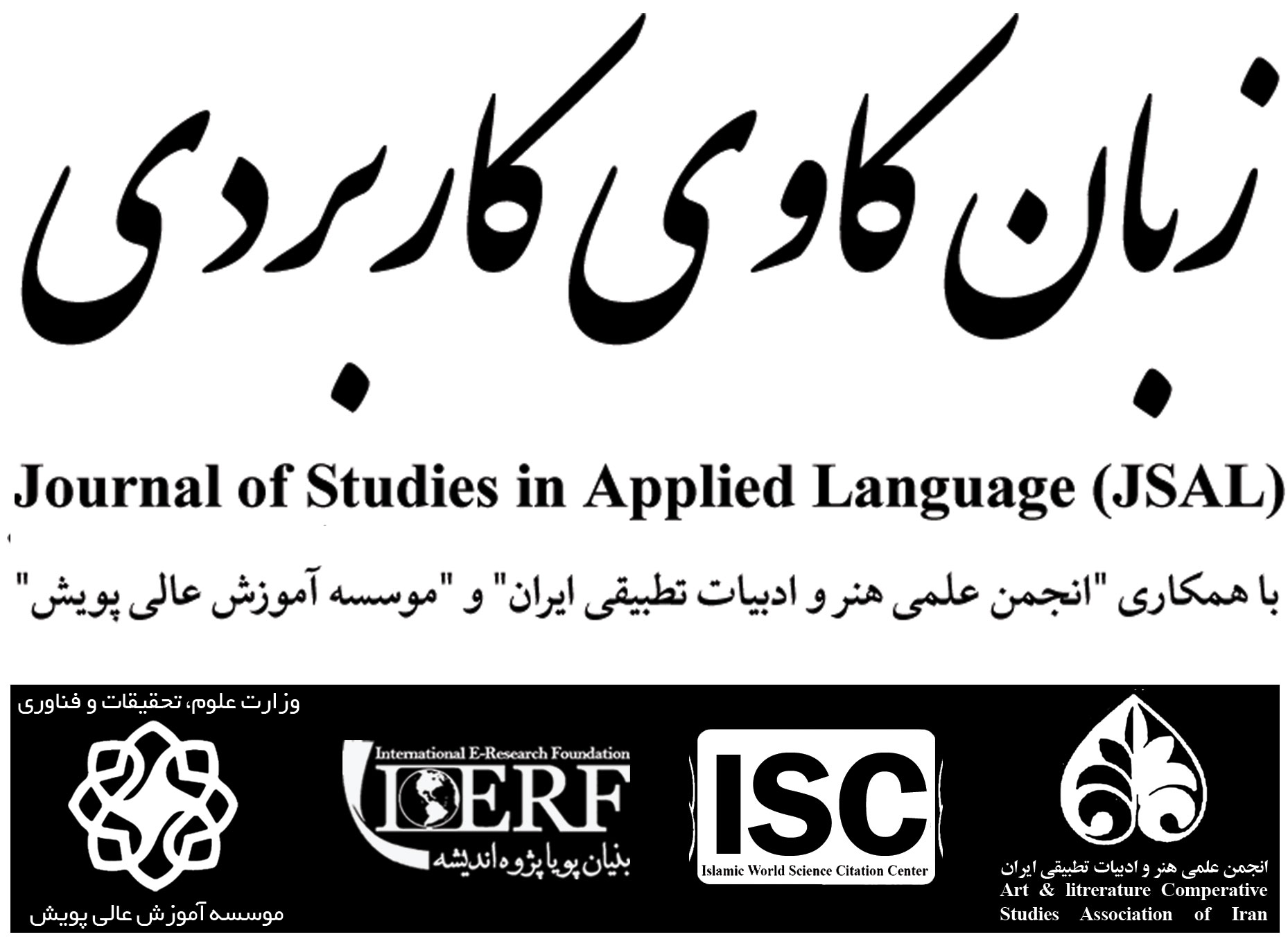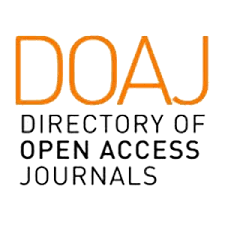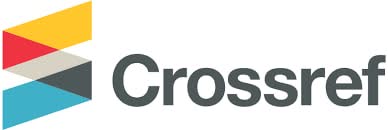
2980-9304 :pISSN
2980-9304 :eISSN
Journal of Studies in Applied Language (JSAL)
- Editor-in-Chief: Prof. Alireza Mohammad rezaii
- Manager-in-Charge: Prof. Mohammad Khagani Isfahani
- Publisher: Bonyan Pouya Pajooh Andisheh Institute (BPPAI)
- Journal Type: Scientific
- Publication Period: Quarterly
- This is an Open Access Journal
- Publication Format: Electronic
Journal of Studies in Applied Language (JSAL) has been published since the winter of 2016 under the licensee of Bonyan Pouya Pajooh Andisheh Institute (BPPAI) based on the registration number 79910 dated 10/07/2016, approved by the Ministry of Culture and Islamic Guidance.
The previous title of the publication was two quarterly journal of language education, literature and linguistics, which were published in 1401 with the new title and arrangement of the Quarterly of applied language research.
The previous title of the publication was two quarterly journal of language education, literature and linguistics, which were published in 1401 with the new title and arrangement of the Quarterly of applied language research.
** The Journal of Studies in Applied Language (زبان کاوی کاربردی) succeeded in obtaining the necessary points to be indexed in the list of main publications of the Islamic World Science Citation Database (ISC) View the letter
** We would like to inform all colleagues that all issues of Studies in Applied Language Journal (زبان کاوی کاربردی) are indexed on the website of Directory of Open Access Journals (DOAJ(
** In order to create and expand consensus and research cooperation between them, a memorandum of cooperation was drawn up and registered between the Journal of Studies in Applied Language (JSAL) with the Scientific Association of Comparative Art and Literature of Iran and Pooyesh Institute of Higher Education.
** We would like to inform all colleagues that all issues of Studies in Applied Language Journal (زبان کاوی کاربردی) are indexed on the website of Directory of Open Access Journals (DOAJ(
** In order to create and expand consensus and research cooperation between them, a memorandum of cooperation was drawn up and registered between the Journal of Studies in Applied Language (JSAL) with the Scientific Association of Comparative Art and Literature of Iran and Pooyesh Institute of Higher Education.
دعوة الباحثين للنشر في مجلة "الدراسات في علم اللغة التطبيقي" (المفهرسة في ISC) (بالفارسية: زبان کاوی کاربردی):
دليل المؤلفين لإرسال البحوث:
شكرا لاختيارك المجلة "الدراسات في علم اللغة التطبيقي" (المفهرسة في ISC) للبحث العلمي. المجلة علمية محكّمة تصدر باللغة العربية عن "معهد بنیان بویا بزوه اندیشه" بقم المقدسة و نرجو اتباع التعليمات المذكورة بهذا المنشور حتى يسهل تحكيمها و نشرها بأسرع وقت ممكن و شكرا لحسن تعاونكم. المجلة تستقبل البحوث الأصیلة والعلمیة. و سیاسة المجلة فی هذا المجال دعم البحوث والدراسات العلمیة المتعلقة بأهداف المجلة و نشرها فی العالم و حمایة المؤلفین و الباحثین فی هذا المجال. و یمکن للباحثین أن یرسلوا بحوثا باللغات العربیة والفارسیة والانکلیزیة إلی المجلة. مجلة " دراسات في علم اللغة التطبيقي"(JSAL) هی مجلة فصلیة (ربع سنویة) و ناشرها هو "معهد بنیان بویا بزوه اندیشه" بقم المقدسة و هی حاصلة علی إجازة النشر المرقمة ۷۹۹۱۰ من وزارة الثقافة الإیرانیة بتاریخ 10/07/2016 السبب الرئیسی لتسمیة هذه المجلة"بالدراسات في علم اللغة التطبيقي" هو الإهتمام الأدبی العلمی المنهجی بالبحوث التی تنعکس السمات الفائقة للنصوص التقلیدیة والمعاصرة فی اللغة. فلذلک تتناول هذه المجلة قضایا علم اللغة التطبيقي (تدريس اللغة ، علم اللغة الاجتماعي).
التواصل معنا: في حالة وجود أي استفسار او لارسال المقال يمكن التواصل معنا عبر
journal@ierf.ir
دليل المؤلفين لإرسال البحوث:
شكرا لاختيارك المجلة "الدراسات في علم اللغة التطبيقي" (المفهرسة في ISC) للبحث العلمي. المجلة علمية محكّمة تصدر باللغة العربية عن "معهد بنیان بویا بزوه اندیشه" بقم المقدسة و نرجو اتباع التعليمات المذكورة بهذا المنشور حتى يسهل تحكيمها و نشرها بأسرع وقت ممكن و شكرا لحسن تعاونكم. المجلة تستقبل البحوث الأصیلة والعلمیة. و سیاسة المجلة فی هذا المجال دعم البحوث والدراسات العلمیة المتعلقة بأهداف المجلة و نشرها فی العالم و حمایة المؤلفین و الباحثین فی هذا المجال. و یمکن للباحثین أن یرسلوا بحوثا باللغات العربیة والفارسیة والانکلیزیة إلی المجلة. مجلة " دراسات في علم اللغة التطبيقي"(JSAL) هی مجلة فصلیة (ربع سنویة) و ناشرها هو "معهد بنیان بویا بزوه اندیشه" بقم المقدسة و هی حاصلة علی إجازة النشر المرقمة ۷۹۹۱۰ من وزارة الثقافة الإیرانیة بتاریخ 10/07/2016 السبب الرئیسی لتسمیة هذه المجلة"بالدراسات في علم اللغة التطبيقي" هو الإهتمام الأدبی العلمی المنهجی بالبحوث التی تنعکس السمات الفائقة للنصوص التقلیدیة والمعاصرة فی اللغة. فلذلک تتناول هذه المجلة قضایا علم اللغة التطبيقي (تدريس اللغة ، علم اللغة الاجتماعي).
التواصل معنا: في حالة وجود أي استفسار او لارسال المقال يمكن التواصل معنا عبر
journal@ierf.ir
| Publication Information زبان کاوی کاربردی Journal of Studies in Applied Language (JSAL) |
|
| Journal publication start date | 2016 (under the title of Semi-Annualy Journal of Language Teaching, Literature & Linguistics), 2023 (with the title of Quarterly Journal of Studies in Applied Language (JSAL)) |
| Frequency | Quarterly |
| Language | Farsi, English and Arabic |
| Format | Electronic |
| Advance Access | Open access (full text) |
| Scope | Applied linguistics (language teaching, Sociolinguistics.) |
| Indexed & Abstracted | ISC - DOAJ - CROSSREF - SUDOC - OPENALEX - Magiran- Noormags- Cevilica |
| Impact factor in ISC | |
| Impact factor IN IRAN | |
| Impact factor | |
| Policy | Double Editorial Review, Double Blind Peer Review |
| Review Time | One month |
| Phone number Contact E-mail |
989306861831 journal  ierf.ir a.mohamadi.np ierf.ir a.mohamadi.np gmail.com gmail.com |
-
An Evolution in Intercultural Studies: Introducing Intercultural Communication Needs Model and Triple Needs Theory in English Language Teaching [In English]
-
The Conceptual Metaphor of Love in the Poetry Collection of Omar Ibn Abi Rabiah [In Persian]
-
Comparative Exploration of the Metaphor of Divine Al-rahmat (Mercy) in Nahj al-Balagha and Al-Sahifa al-Sajjadiyya through Olaf Jäkel’s Cognitive Framework [In Arabic]
-
Explication of the Structure of Simple Persian Verbs and Their Governing Principles, With an Emphasis on Root Types and Morpheme Formation; A Linguistic Perspective [In Persian]
-
A typological study of kinship terms in Qazvin Turkish dialect
-
From Form to Content: Examining the Influence of Abbas Nalbandian’s Plays on Iranian Absurdist Theatre
-
A Study of Nida’s (1964) Types of Equivalence in Three English Translations of Letters 40 to 60 of Nahj al-Balagheh [In English]
-
Analyzing the Element of Time in the Novel "In the Spider's Pavilion" based on Gerard Genet's Theory of Narrative Time [In Persian]
-
Analyzing the Stylistic-Linguistic Suitability of Mirjalaluddin Kazazi's Translation of Shaheswar Arrabeh by Chértin Dutroy based on the Action Space of the Text [In Persian]
-
Marked and Unmarked Thematization Patterns: A Contrastive Study of Translated and Non-Translated Persuasive Texts [In English]
-
A Linguistic Study of Types of Repetition in Persian Legal Bills [In Persian]
-
Effectiveness of the Garces Model in Evaluating Grammatical Efficiency; Case Study: Ali Shirvani's Translation of Nahj al-Balagheh [In Persian]
-
A psychoanalytical analysis of Anton Chekhov’s The Darling and Anyuta in the light of Karen Horney’s theory of moving toward people [In English]
-
Canonizing Shahnameh in Early Modern Iran: A Historical-Semiotic Approach [In English]
-
Prospects or Projects, Which Is More Gender-biased: A Comparative Study in Critical Discourse Analysis [In English]
-
Différance: David Mamet’s Oleanna [In English]
If you have forgotten your password or username, please use the "password recovery" button. At the modern intelligent Yektaweb website, you can access to all TMU Press journals by a single account.
In tha cases of facing with any technical faults or needing help to continue the journal processes, use the "send ticket" button to connect with Yektaweb SAMA Support Center. All questions will be answered asap.













